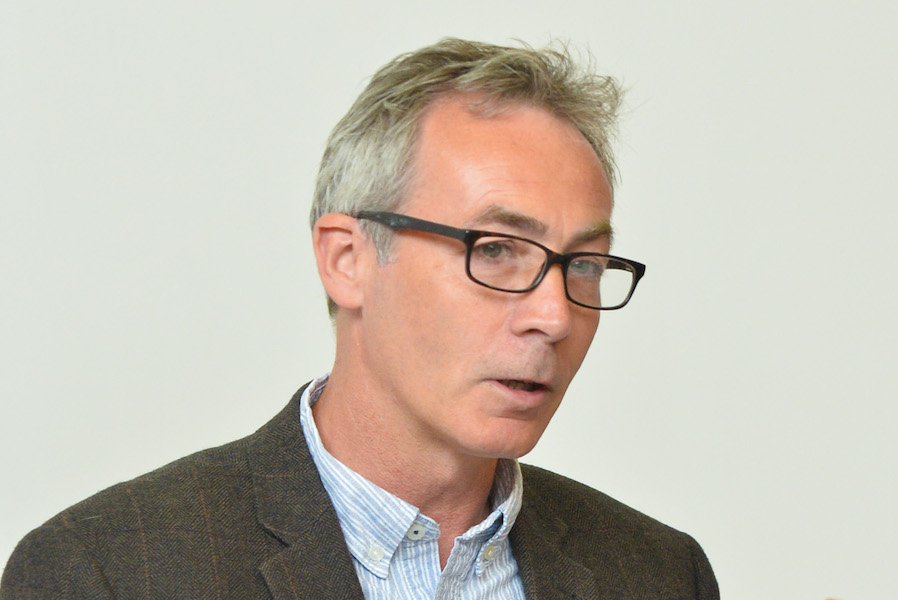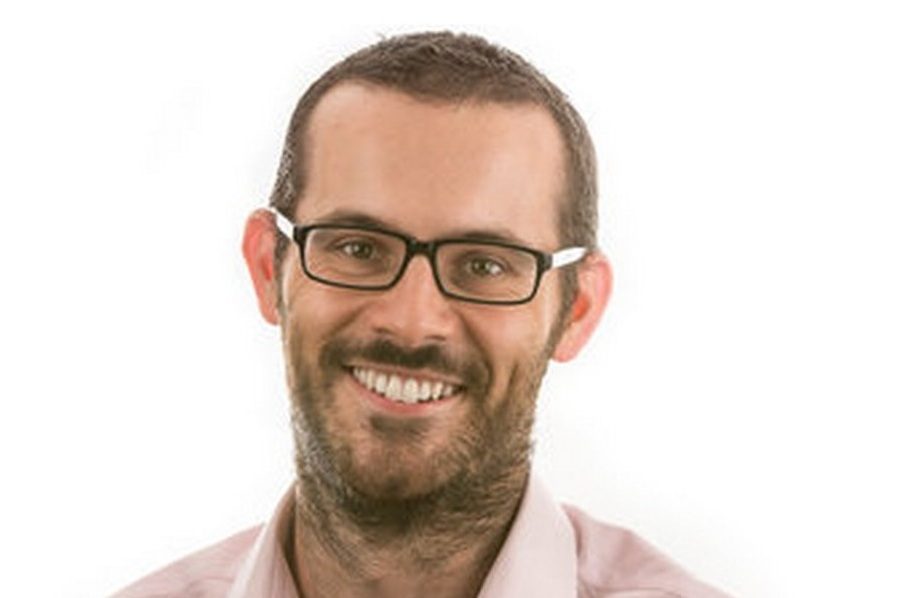
Your Voice: What the growth of charitable foundations means for fundraising
February 6, 2019
Expert View: What living in the ‘attention economy’ means for CSOs
March 27, 2019What’s influencing the charitable giving market in Europe and what can be done to drive change? We ask thought leaders from across the sector their views on how technology, public trust, charitable foundations, civil space and the EU are evolving, and what this means for fundraising.
Technology – New opportunities for engaging with supporters
New technologies are ever changing the way we do things and, when they enable charities to reach new audiences in new ways, to interact quicker and more efficiently, it’s no surprise that there is so much appetite to embrace digital channels for fundraising and more.
A recent report from Salesforce.org found that more than nine in ten non-profit leaders said their charities were using social media. The study found that three quarters of them are using digital to raise awareness of their brand or cause, while 59% also use it to engage with their community, and 57% to fundraise. Almost half (47%) use it to showcase impact.
We ask Rhodri Davies, head of policy at Charities Aid Foundation and leader of Giving Thought, how technology is changing the way people in Europe interact with charities and how this could influence the way they donate. He says:

Rhodri Davies, Charities Aid Foundation
“Technology is already having a huge impact on how we communicate, organise and interact with each other. Inevitably, it will also come to change the ways in which we support charities.
“In the short term, the main impact may be quite prosaic. For instance, digital payment providers like ApplePay or Google Pay are seeing donations as something that can be added to an existing wider offering, whilst non-financial platforms like Facebook are adding payment functionality to their platforms and at the same time are making the ability to donate a core part of the package.
“But much more fundamental changes are likely to come around the corner. The growth in voice-operated interfaces like Amazon’s Alexa or Apple’s Siri is already a clear sign that the way in which we interact with technology may be shifting away from our current screen-based paradigm.
“Virtual and Augmented Reality are already being used by a growing number of charities to raise awareness of their cause or to give potential supporters immersive fundraising experiences. And in the future, as VR and AR become integrated into our daily experience, the opportunities to use them to drive empathetic responses that lead to donations will potentially be enormous.
“New technology also offers the promise of radically enhanced transparency. Experiments with blockchain technology have demonstrated that we can create platforms that enable donors to track their unique individual donation all the way to the end recipient. Whilst none of these has yet reached scale (and may never do so), it seems unlikely that the genie of radical transparency can be put back in the bottle now that we know it is possible.”
Signs of a recovery in public trust
Demand for transparency among the donating public remains high, with charities working hard to demonstrate their impact. Many national governments are introducing new legislation to strengthen the fundraising environment and build public trust, as is the case in Slovakia and the Czech Republic
The latest findings from the Edelman Trust Barometer 2019 highlight how critical that is. While the study reinforces the picture that trust levels in NGOs are rising, it also highlights the market has some way to go before we are out of the woods. In four of the most mature European fundraising markets – the UK, Netherlands, Italy and Germany – fewer than half of those surveyed said they trusted NGOs.
With a fall in donor numbers recorded in Germany and Italy, and stabilising donation levels in the UK and Netherlands, trust continues to be a vital issue. Recognition is widespread among the fundraising community of the importance not only of improving transparency, but of strengthening supporter relationships and ensuring donors feel truly valued. We ask Dutch fundraising consultant Reinier Spruit what went wrong and what fundraisers can do to further build trust.

Reinier Spruit, Consultant
“The reality of a donor is: too often forgotten, not enough respected, too often asked, not loved enough, approached too often, not recognised enough and often never even thanked. The good work of our causes can only be done because of our donors. Once we lose track of that notion it goes wrong. Horribly wrong.
“CEOs aren’t talking to their donors. Sometimes even fundraisers are not talking to their donors. Long-term targets are completely absent. And annual targets are chased at the expense of longer-term revenues. Retention reports and other quality indicators are missing. Measurement of key metrics and understanding the effects of our actions is simply not happening.
“Is it any surprise that the public has had enough?” he asks.
“We had one job. To do what we promised to do and create a better world. Ironically, we did that. But we failed to communicate it properly, be genuinely appreciative, and involve and respect the most important group of people who kept our engines running: our donors. Add an occasional non-profit scandal and trust levels dropped, with donor retention rates going down too.
“The success of individual giving fundraising depends on a combination of donor-centricity, controlling your data, authenticity in your communication, differentiation from other causes and excellent programme management.”
Shrinking civil society space
Perception of NGOs is equally critical at European and national level, with continued reports of a shrinking civil society space and concerns that Europe remains an increasingly challenging place for NGOs. Among a range of concerns is the growth of the far right political parties, who object to immigration and NGO campaigns to protect refugees.
In some cases, national governments have imposed greater legal and administrative barriers, making it more difficult for NGOs to receive funding. This has been particularly evident in Hungary, with the Stop Soros Bill introduced in June last year, making it illegal to give aid to migrants, and where government policy priorities and funding schemes have been broadly directed away from NGOs to support traditional family values and strengthening the national identity.

Jan Gregor, For Easy Giving
While concerns remain about how such policies may restrict NGO funding and this is no less the case for 2019, it is within this environment that community spirit can flourish. As Jan Gregor of For Easy Giving in the Czech Republic says:
“While NGOs are at the centre of criticism from populist opinion makers, the public don’t always share that view. In fact, anti-NGO policies often have the effect of mobilising a rising power among the population of supporters, many of whom had not engaged with or supported charitable organisations before now. They want to step forward and take action.”
Restrictions to civil society space have been felt in Romania and yet from within this challenging environment, a thriving network of community foundations, charitable supporters and philanthropists has emerged in recent years. The community foundations have become active philanthropy centres, supporting the involvement of private donors, responding to local needs and opportunities, with enough resources to become actors with a key role in local development.
Lev Fejes, head of research at ARC Romania, says: “Now there are 16 active community foundations in Romania that serve almost half (46%) of the population. Between 2008 and 2016, community foundations have invested US $3.9 million in their local communities, through grants, scholarships, community projects, and in kind donations.”
Tamás Scsaurszki, chair of the board of the Roots & Wings Foundation – a support organisation for community philanthropy in Hungary, adds that although government policies have meant ‘growing suspicion’ of NGOs and an increasingly difficult regulatory environment:
“We can also see these realities as drivers for community foundations to push even harder to reach out to the ‘undecided middle’, to work with the local elite, including open-minded councillors and public figures, on issues affecting the community to ensure legitimacy and transparency, and to question and reinterpret their own mission, intentions and strategy regularly.”
Read more about charitable giving in Romania in our Market Spotlight.
Grant funding opportunities
Of course, it is not only community foundations that are growing. Charitable foundations are a growing part of the European landscape, making grant funding opportunities more widely available. Germany has a long history of foundation giving and over 22,000 foundations are now in place, according to the Association of German Foundations, but growth is now being seen across the continent.
According to a recent report from French law firm Fidal, the foundations sector in France has trebled over the past decade from 1,847 to an estimated 5,541 foundations in 2018. The majority of this growth has been driven by endowment foundations, which now constitute half of the national foundation market.
In the UK too, the Association of Charitable Foundations reported that annual grant-making achieved a new high point of £3.3 billion from the top 300 grant-making trusts. Growth is largely being driven by new gifts to existing foundations, with family and personal foundation donations up by 10% at over £2 billion for the first time, growing by 10% and accounting for 62% of the total value. Corporate foundation giving shrunk slightly, with the top 50 awarding grants totalling £228 million.
While the foundation sector is broad and varies widely across Europe, we ask James Magowan, coordinating director of DAFNE what this means for fundraising. He says:

James Magowan, DAFNE
“Foundations are becoming an increasingly important ingredient of the fundraising mix for charities and NGOs, with family, community and corporate foundations all becoming more prevalent.
“We’re in the midst of a generational phenomenon, where a huge amount of wealth is being transferred from an ageing population to a younger one and this means far greater propensity to give or set up a foundation.
“There seems to be a real a desire for more structured and strategic philanthropy, with individuals and companies making conscious decisions to do things a little differently, shifting the focus from making money to using it for good. In today’s entrepreneurial society, foundations can be an ideal way to go about it, and in ways which utilise the donor’s skills and experience.”
Read more in our full interview with James Magowan here.
An evolving EU
2019 brings a host of changes at EU level from the shift of the presidency to Romania, the European Parliament elections this May and, of course, Brexit.
One of the first steps that the Romanian presidency took was to commission an ‘opinion’ from the European Economic and Social Committee (EESC) on what measures and initiatives should be taken at EU and national level to promote organised philanthropy. An encouraging sign, sure enough.

Gosse Bosma, EFA & Goede Doelen Nederland
Gosse Bosma, EFA president and director of Goede Doelen Nederland, says:
“We are encouraged that the Romanian presidency recognises philanthropy as a priority for the EU, having commissioned the EESC to write an opinion on what can be done to promote organised philanthropy and eliminate barriers within the internal market.
“Charities and the fundraising community play a critical role in delivering services, improving quality of life and offering employment and training prospects for people across the continent. This simply wouldn’t happen without the generosity of the European public and it is vital that we seek to develop and enhance the philanthropic environment.”
The opinion will explore the role that civil society can play in contributing to EU values, such as cohesion and social justice, and to the competitiveness of the European economy. Of equal importance, the opinion will seek to help identify and eliminate barriers that prevent philanthropy from contributing to EU values and to the competitiveness of the European economy. The intention is that the conclusions and recommendations will feed both into the Romanian Presidency programme and into the political priorities for the new Commission.
Brexit will undoubtedly have implications for charitable organisations, particularly those that currently rely on EU funding within the UK. But the implications may be more far reaching, including the recent decision to turn off the tap for EU humanitarian aid funding for Swiss organisations such as Médecins Sans Frontières Switzerland, Caritas and World Vision, recently reported by Swiss Public Radio (SRF). This means they will no longer receive funding which has been worth over €50 million (CHF57 million) in the past.
Solidar Switzerland director Felix Gnehm is reported to have said:
“It wasn’t totally unexpected, as we knew that the EU was examining future cooperation with Swiss organisations within the context of Brexit… but we didn’t expect it so quickly.”
In a letter, the European Commission explained that it had carried out a review of existing cooperation arrangements and that “it will no longer be possible for organisations based in states outside the Union to be considered eligible” for funding and as part of a Framework Partnership Agreement.
Do you have a view that you’d like to share with your peers in a future edition of Fundraising Europe? If so, contact news@efa-net.eu today.




